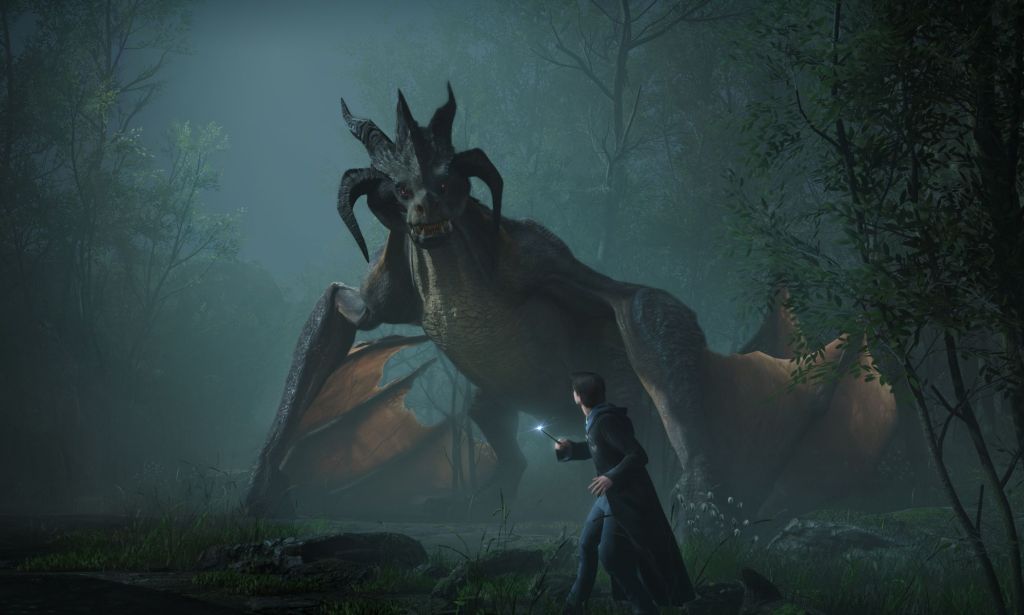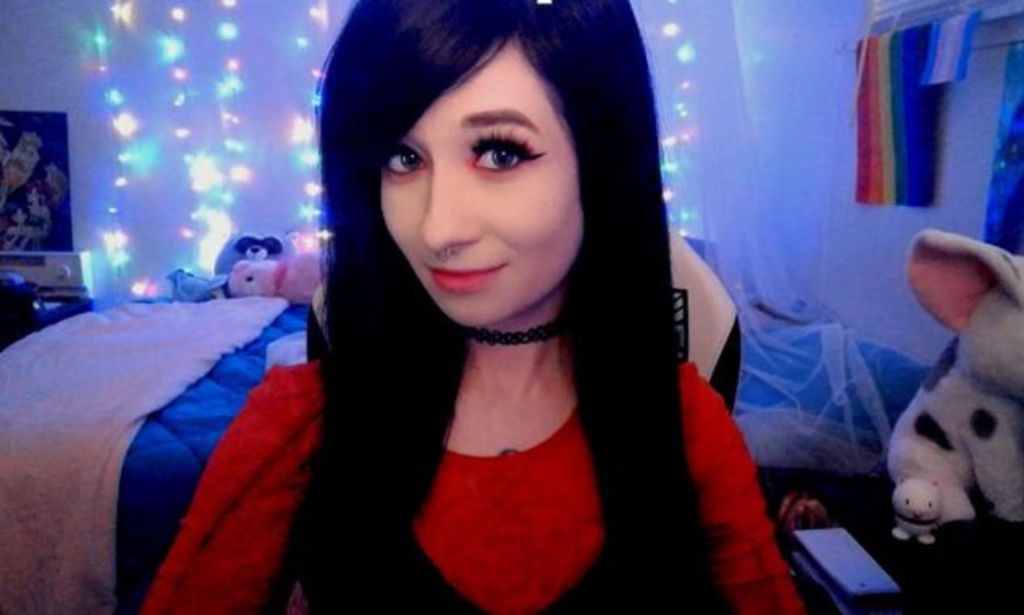Why controversial Hogwarts Legacy’s attempt to appease LGBTQ+ fans is too little, too late

Hogwarts Legacy hasn’t been nominated at The Game Awards 2023. (Warner Brothers)
Is it really a surprise to anyone that a video game based on the intellectual property of JK Rowling has become one of the most controversial and divisive releases in recent memory?
The long-awaited Hogwarts Legacy – based on the author’s Harry Potter books, of course – will finally be released on PlayStation 5, PC and Xbox X/S on 10 February, with a PS4 and Xbox One release to follow on 4 April.
The Avalanche Software-developed spin-off game sees players control a student at Hogwarts – a cornerstone of Rowling’s wizarding world – in the 1800s, in a large open-world complete with magical beasts and spells.
Upon its official reveal at Sony’s PS5 live stream event in September 2020, the game was immediately swamped in controversy.
Many gamers have been very vocal about their intentions to boycott the game over JK Rowling’s seemingly-uninhibited views on trans rights, with LGBTQ+ activists arguing its sales will financially support the beleaguered author. The game’s messy and controversy-laden development cycle has only helped to justify the move.
“JK Rowling has a loud voice and she knows it,” says Twitch streamer Boba, who’s been using donations from followers to support trans charity Mermaids.
“She knows she’ll get attention for the things that she’s saying. She knows that people will see that and, unfortunately, agree with her.

“Harry Potter is a tricky one too. A lot of people’s identities are centred around it, and when you try to tarnish it, I know it’s super difficult for people to let go of it.”
Hogwarts Legacy has also been accused of propagating antisemitic tropes with its goblin uprising plot and a lead developer was also revealed to have previously run a far-right, anti-feminist YouTube channel.
In the midst of the controversy, Avalance Software has attempted to prove it can overcome the baggage by cutting creative ties with Rowling.
Additionally, on-the-ground developers have included a hard-fought option that allows players to create transgender characters.
However, trans activists and allies alike felt attempts to rebuild burned bridges between the series and its LGBTQ+ fans were too little, too late.
Streamer Boba creates fundraiser as a pro-trans alternative to Hogwarts Legacy
One such activist was Boba, who has routinely spoken out in support of the trans community.
As part of the boycott, the queer streamer created a fundraiser for LGBTQ+ charity Mermaids, encouraging people to donate the £60 they would have used to buy the game.
At the time of writing, more than £6,400 had been raised, with donations of up to £500 from those taking a stand against anti-trans rhetoric.
Boba tells PinkNews the idea came from a conversation during a stream with a fan who was certain they wanted to pick up the game despite its impact on the trans community.

“They were really keen on it, they weren’t taking any criticism and were very much saying, ‘I’m going to play the game.’
“So I messaged them and said, ‘I don’t think this is really the right place to have this conversation’ because I knew a lot of people were getting uncomfortable,” she continues.
“I gave them some information about everything and they came back and said, ‘Thank you, I read up on it more and I didn’t realise just how much the game was affecting the trans community.'”
After the exchange, Boba decided to donate the retail price of Hogwarts Legacy to Mermaids, later deciding the act would work better as a public fundraiser.
This isn’t the first time Boba has shown her trans-activist side, having been a five-star ally both to her fans and friends who identify as trans or non-binary.
Additionally, as part of her association with media company The Yogscast, she participates in an annual “Jingle Jam” fundraiser where streamers raise money while playing games.
Last year, The Yogscast raised more than £3,400,000 for various charities, including Mermaids, British Red Cross, Movember and many more.
Boba also helped trans people access healthcare while working at Planned Parenthood prior to becoming a streamer.
She saw patients every three to six months during their transition, which opened her eyes on how gender-affirming care can help.
“I can see this difference over time like a snapshot, like a scrapbook,” she says.
“To see someone who is able to be themselves, which I think is basically everyone’s human right, that to me is such an important thing.”
Because her viewers can contribute to the conversation using Twitch’s live chat feature, Boba’s streams often become an open forum to help discuss progressive topics such as LGBTQ+ issues.
“I always encourage people to talk about things,” Boba adds.
“Recently, I’ve had a lot of people come into the chat saying, ‘I’m going to play the game, I was wondering if you’re going to play it too.’
“That gets me to think, like, OK, here’s a good opportunity to speak on how I feel about this. Because I have so many trans people involved in my community, I feel it’s really important to have that teaching moment, and I like to do that.”
Much like with the rest of the community, Boba’s main issue with the game is its association with JK Rowling and gamers’ complicity in supporting her – even if it is inadvertent.
Trans gamers already feeling the effects of the game’s release
The issue becomes even worse when looking at it from the lens of a trans person who wants to simply enjoy gaming culture.
With the release of the game just around the corner, trans gamers have been reiterating that, while one person’s decision to play a game may not affect JK Rowling’s career, it will affect their LGBTQ+ friends around them.
One such person is non-binary gamer and developer Robin, who creates games either alone or with a very small team – a practice known as indie development.
He tells PinkNews that the laundry list of problems with the game makes it incredibly difficult for him to chat with people who choose to play it.
“It hurts because it is a choice that they have made,” he says.
“It’s a clear display of being unsupportive and shows that they are not able to confront the discomfort that is necessary to do the work.
“Being neutral is a choice, being apolitical is a choice,” he adds.
“You need to be able to sit with your discomfort and be OK doing so at times.”
Robin also argued the franchise itself is problematic for various reasons, adding that there are “far more interesting and uplifting franchises [he’d] rather support”.
Sadly, it doesn’t seem like the boycott will have a major effect on the success of Hogwarts Legacy, which was reported by Amazon as the top-selling game on the PlayStation 5 in January, before it was even released.
But for Robin and so many others, that’s not the point: choosing to support a Hogwarts Legacy boycott is a sign for those around you that the rights of trans people mean more to you than a fantasy realm that, to some, reeks of anti-trans rhetoric.
“In the least, it will communicate to the folks hurt by JK Rowling’s words and work that they are not alone and people believe and trust them,” Robin adds.
“The most it could do is communicate that to people in power.”
Browsing on your phone? Click here to join our new PinkNews Alerts WhatsApp group for daily digests of the hottest LGBTQ+ news and features.

